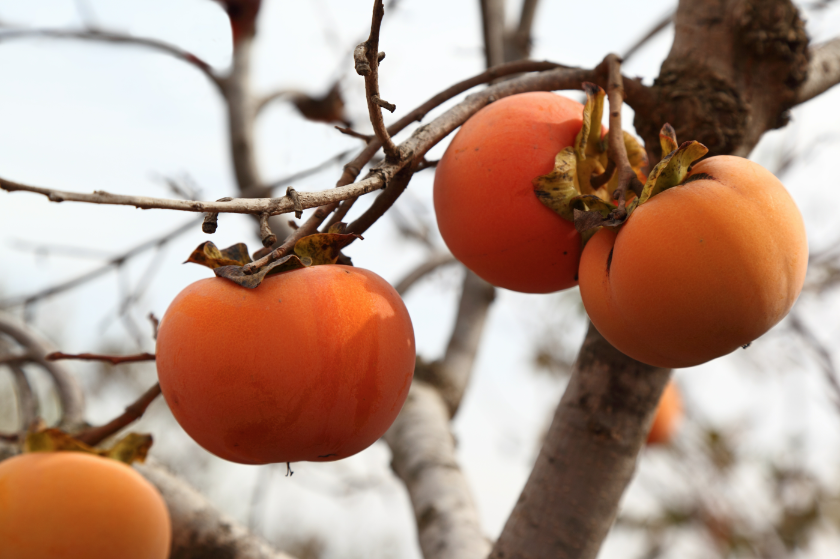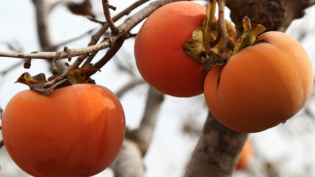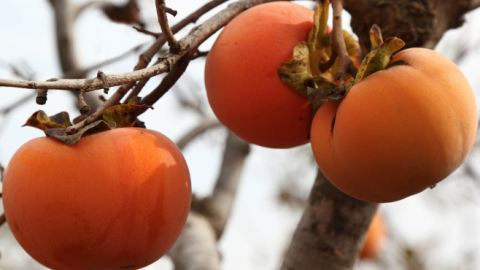Winter Forage: Persimmons
Persimmons are unique in that they become ripe and drop after the first frost, making them the perfect winter fruit. Persimmons are quite common in Indiana. In fact, there’s a whole festival dedicated to them in Mitchell, Indiana.
The trees are typically found at the edges of forests in areas that receive full sun. You’ll be able to easily spot the fruit because it will still be hanging in the tree long after the leaves have fallen for winter. Persimmons are a burnt orange color between one and three inches in diameter, and they look a bit like a tomato.
The important thing to remember about persimmons is that you must make sure the fruit is ripe before eating it. Judging the ripeness of persimmons is very different than that of your typical supermarket fruit because they must be very soft and mushy before they’re any good. Unripe persimmons are so astringent that they make your mouth shrivel and pucker. But if you’re patient, ripe persimmons are very sweet which makes them great for jams, chutneys, sauces, baked goods, and other desserts.
Persimmons are among the most nutritious of fruits. They’re especially high in Vitamin C and calcium. Additionally, a study from the American Chemical Society says that a persimmon a day does more to reduce the risk of heart disease – the leading cause of death in the United States – than an apple. This is because of the fruit’s extremely high concentrations of dietary fiber, minerals and phenolic compounds, which are instrumental in fighting atherosclerosis, a leading cause of heart disease, heart attacks and stroke.








